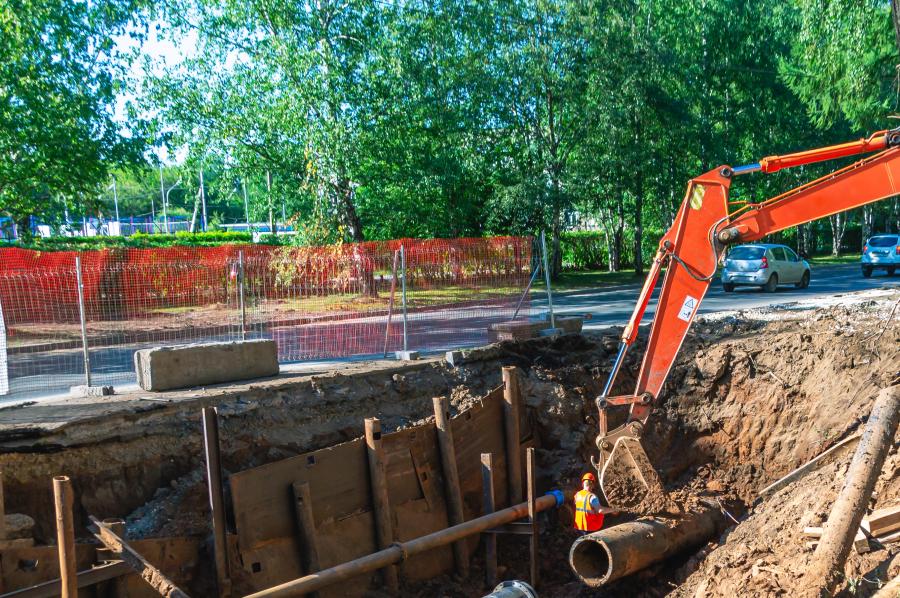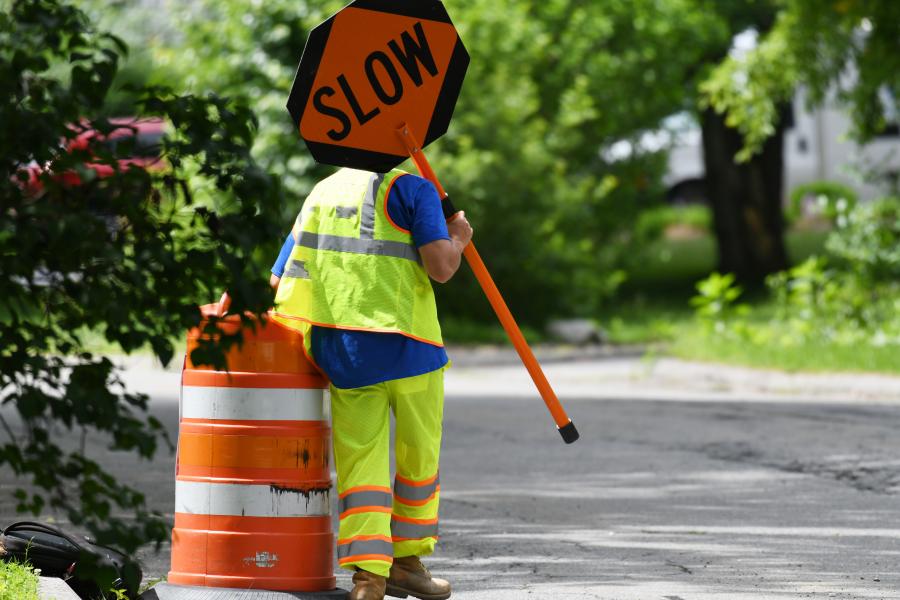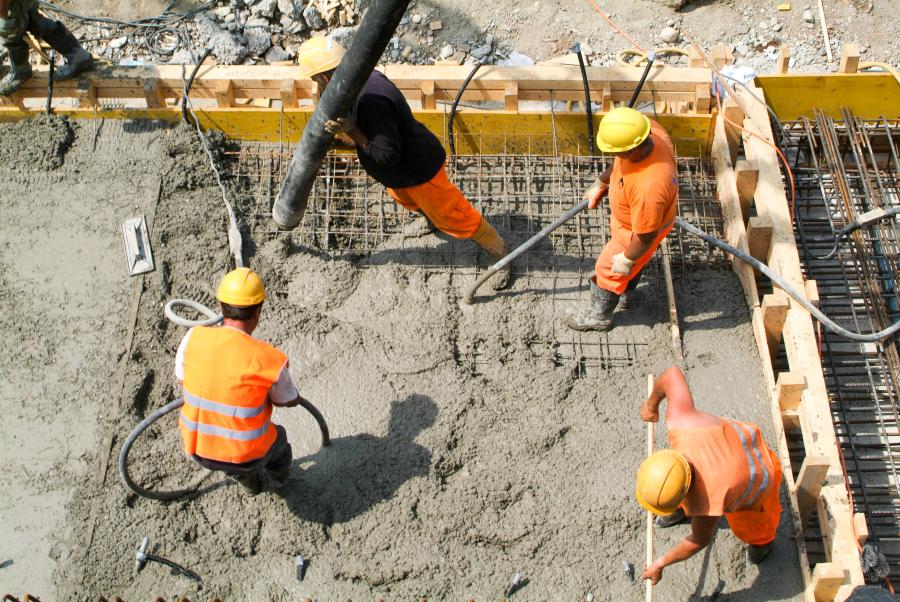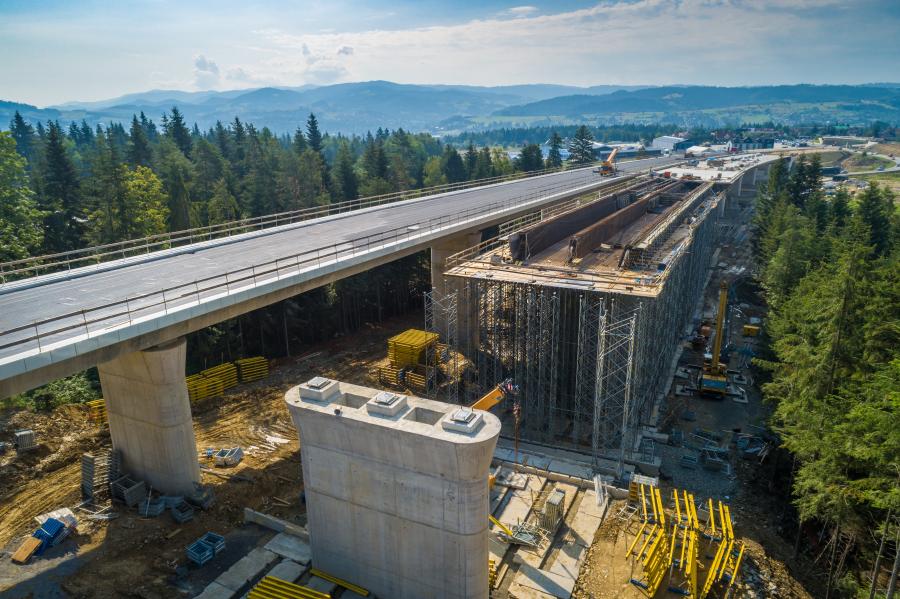Adobe Stock Photo
Deepfakes can cause all kinds of grief on major construction projects.
Even in construction deepfakes are a very real, very costly issue. The result of a fake video or image could be lost income, employees walking off the job or even an indefinite halt to the entire project. Getting out in front of the deepfake as soon as you can is the key to saving not only your company's reputation but the bottom line.
A deepfake can result in reputational concerns over safety, a lack of trust for your company or call into question the integrity of a project. A deepfake creator can attack the budget and cost of a project, the project's progress, the work timeline or the project's resources.
In the end, the loss of business, the legal implications and cost overruns can ruin a contractor despite his claims of innocence, said Josh Weiss.

Adobe Stock Photo
A crisis communication expert, Weiss sees deepfakes at the corporate and even contractor levels becoming more prevalent in the next 12 to 18 months.
"I expect that by the fall of 2024 or early 2025 we will see more deepfakes striking," said Weiss.
He said the bright side of all this is that bombarding society with deepfake videos and images will have a reverse effect.
"By mid-2025 or early 2026, nobody's going to believe anything they see or hear anymore," which Weiss believes is a positive for deepfake victims.
In the meantime, social media platforms will have to find a way to remove or prevent deepfakes from happening. Until that happens, companies will get hurt before people realize they shouldn't believe what they see.
In construction, "a lot of the people doing deepfakes are trying to make it look like a company is cutting corners," said Weiss.
How Deepfakes Happen
A deepfake goes beyond just ruining your reputation. They can have a huge effect beyond just the ego. Weiss has examples.
Say a contractor is bidding on a contract with the state. They've submitted an RFP and they made the final list.
"What happens if a competitor creates a deepfake video during the selection process, where it appears you can't do the job, or you're cutting corners?" said Weiss.
The judging panel has your bid, but they're seeing messages and images depicting your company as unable to perform.
"If a deepfake hits a week before their deadline and they're not sure if it's real or not, are they willing to choose a certain company anyway?"
It's a huge risk for that committee to take, especially for a state or even a federal contract, said Weiss.
A deepfake video can be created by someone who doesn't want a project to move forward, or who believes the community will be negatively affected.
"Someone in the community creates a fake video that implies there's a major safety issue on the construction site, alleging the contractor is not meeting standards."
Or they claim historic artifacts were found during excavation of the site. They claim it's an ancient burial ground. That can stop a project in its tracks.
"Someone can claim there are risks on a project associated with dust," said Weiss. "So, a contractor can water the site down in order to protect the neighborhood. But if you have a video that makes it looks like the general contractor is ignoring the environment, that company gets fined, and that stops the project."

Adobe Stock Photo
Another example: "Say you have a disgruntled employee who creates a video that depicts what looks like a safety manager breaking a rule."
That disgruntled worker is just trying to hurt an employer, or maybe they're trying to keep the project going longer so they can stay on the job.
"There are always those kind of risks, where deepfakes can threaten a company's ability to operate," said Weiss.
Deepfakes in construction are still fairly rare, but there's a reason the industry isn't hearing it happening a lot.
"Because, really, who wants to publicize that? And it's such a new form of attack that companies may not know they're under attack," he said.
Weeks after that RFP phase a contractor may find a video and realize they're being attacked. This trend is only starting to hit the construction industry, he said.
"Even in the case of major construction companies, if somebody wants to manipulate their stock, all they have to do is create a fake video."
These characters don't care if you find out it's a deepfake a week or two down the road because they've already made their money.
Answer Deepfakes With Transparency
It's very difficult for a contractor to overcome the effects of a deepfake, especially on a multi-million dollar project, said Weiss.
But there are a few things a contractor can do to become a moving target right now:
- Purposeful Monitoring — This means making sure you're watching for deepfakes. Is your company's IT department doing all it can in terms of protecting videos?
One form of protection is putting watermarks on your corporate videos. Steps you take internally can demonstrate what's yours and prevent someone from getting access to your images.
- Update crisis communication — Companies should update their crisis communications plan to cover deepfakes.
The bonus is most companies already have a crisis communications plan, said Weiss.
"They already have protocols in place for how to handle a media crisis, a community crisis, etc."
He said most of a contractor's crisis communication plan remains unchanged in addressing deepfakes. But there is one major difference.
"If something bad happens and you say this isn't real or it's not really me, no one's going to necessarily believe you," said Weiss. "Just because you say it's fake, people just don't know if they should believe you or not."
- Get third-party endorsement — You really need a third-party expert to say something is fake.
"Some tech companies have developed deepfake detection software to find which pictures are fraudulent," said Weiss.
Most experts can customize a plan to meet your company's needs. The key is having a third-party expert explain why it's fake.
"That's a lot more credible than you explaining by yourself" on behalf of your company, he said.
"I urge companies to update their crisis communication and emergency plans. I consult with them on what to do and say during a deepfake."
And, he said, that extends to what to say to their employees believing the head of the company is having an affair, doing drugs or putting their jobs at risk.
A third party can say "this is fake" and explain why. The faster you get that out and have proof it's fake, the sooner you can show that it's already disproved.
"If you don't have a plan lined up, if you have no third-party proof, that fake video is allowed to circulate for three days," said Weiss. "That means more people every hour will see that bad news. With a deepfake crisis it's all the more important to respond as soon as possible."
During a media crisis, your plan is to have a statement to buy yourself more time to deal with a negative situation.
"But it doesn't work that way with a deepfake crisis because the video will keep going until you can prove it's fake," said Weiss.
Preventing Deepfake Damage
Inside your company, said Weiss, there are steps your IT department can take to mitigate the occurrence of deepfakes.
One goal, he said, "is to try to lock down the ability for bad actors to access that corporate video."
Finding that forensic capability to break it down is another step in the right direction. In all likelihood most contractors don't have the inhouse IT resources.
"You need special software or expertise to detect and make it less believable," said Weiss.
Another step a contractor can take is to train employees on the damage a deepfake can cause to the company.
"They may believe it, too," said Weiss. "All of a sudden innocent employees are spreading the fake news even faster. If you want to stop that, I encourage companies to understand their employees are their first line of defense."
Recognizing and reporting is the best way to start the clock in finding third-party experts to say something is fake.

Adobe Stock Photo
The faster company executives know, the faster they can reach out, say it's fake, get that on the record and defend themselves.
Your crisis communication plan should detail what they tell employees who are most afraid because their jobs are at risk.
"The guy in the field, the worker onsite, is the one getting calls and comments from the public, elected officials and customers."
A contractor should always try to tell employees what's happening so the employee is prepared to share the right message if someone asks.
"You don't want them to speak for the company, but their response is a public statement even if it's just to another worker."
And, you want that message to be positive, added Weiss. You want that employee to say, "It's not true, we're addressing it."
That message, at least, helps employees know what's going on and they realize it's not true, said Weiss.
"If you never address the issue with employees, they start to wonder if it's real, too."
The next step is getting the message to your elected officials from representatives of your company.
If there's a general contractor on the project, you need to tell the GC what's going on.
"It's embarrassing to say it's fake, but wouldn't you rather say it's fake, than they see it, wonder if it's real and ask you about it?" said Weiss.
The idea is, whoever gets the first chance to say anything will control the message, he added.
So, you the contractor want to be the first one to share info, "but not so loudly you tell people something they never would have known about." CEG
Lucy Perry
Lucy Perry has 30 years of experience covering the U.S. construction industry. She has served as Editor of paving and lifting magazines, and has created content for many national and international construction trade publications. A native of Baton Rouge, Louisiana, she has a Journalism degree from Louisiana State University, and is an avid fan of all LSU sports. She resides in Kansas City, Missouri, with her husband, who has turned her into a major fan of the NFL Kansas City Chiefs. When she's not chasing after Lucy, their dachshund, Lucy likes to create mixed-media art.
Read more from Lucy Perry here.
Today's top stories


















